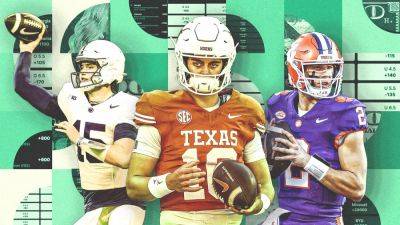Anatomy of an NFL holdout: What it's like for players, agents, teams - ESPN
Future Hall of Fame offensive tackle Walter Jones spotted something in a newspaper that changed everything about his monthslong holdout in 2002.
Jones was trying to secure a long-term deal from the Seattle Seahawks. After holding out of all team activities for the entirety of training camp, he extended his absence into the first two games of the regular season.
But, while leafing through a newspaper at his Huntsville, Alabama, home, Jones read something that compelled him to sign a deal that same day:
The amount of money he had forfeited.
Players receive their paychecks on a weekly basis during the season. So missing Weeks 1 and 2 meant two checks totaling $578,823 had not been deposited into Jones' bank account. So he signed the franchise tag tender that had been awaiting him for $4.92 million.
• Policy a perfect fit for Green Bay
• Tyler Smith contract worth monitoring
• How Vikes saved J.J.'s lost season
• Why did Pats draft a long-snapper?
• Allen's impact on Bears' defense
"[The article] was like, 'This is how much money Walter [is] losing,'" Jones said. «I was like, 'Wait, I don't want to lose any money.' So I went in.»
It is a harsh reality of holding out — a process in which a player does not report to training camp, despite being under contract, and becomes subject to mandatory fines. The emotional twists and turns for all involved in a holdout — or hold-in (when a player attends team activities to avoid being fined but doesn't participate ) — are many. Players must deal with uncertainty over their future and missing time with teammates. General managers know they must get an important player signed while facing pressure from fans, owners and coaches. Agents not only negotiate deals but also handle the players'








